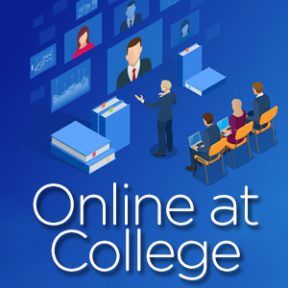 With the high cost of a bachelor’s degree, many parents are taking out loans that they can’t afford to repay. They can actually be delinquent on other loans and still qualify for the Parent PLUS loans. Hmm. Why would lenders do that? In 1990, parents borrowed about $5200 annually; in 2014, they borrowed $16,000. Even worse, parents who really need financial aid often rely on the Parent PLUS loans after they’ve reached their limits with subsidized (government pays the interest while student is in college) and unsubsidized (interest payments start immediately) Stafford loans. These loans don’t have income-based repayment plans or loan forgiveness that they might have with federal undergraduate debt.
With the high cost of a bachelor’s degree, many parents are taking out loans that they can’t afford to repay. They can actually be delinquent on other loans and still qualify for the Parent PLUS loans. Hmm. Why would lenders do that? In 1990, parents borrowed about $5200 annually; in 2014, they borrowed $16,000. Even worse, parents who really need financial aid often rely on the Parent PLUS loans after they’ve reached their limits with subsidized (government pays the interest while student is in college) and unsubsidized (interest payments start immediately) Stafford loans. These loans don’t have income-based repayment plans or loan forgiveness that they might have with federal undergraduate debt.
Underrepresented minority students are hit the hardest. When colleges don’t offer enough scholarship money and they reach their borrowing limits on government loans, parents are pressured to fill the gap between affordable loans and the total cost of the bachelor’s degree with Parent PLUS loans that they may never be able to repay. In 2011, the Obama administration tightened eligibility standards on the Parent PLUS loans to ensure that families could repay their loans.
Unfortunately, this creates an unfair advantage for students whose parents can simply write those tuition checks. Lower income families with students who have average grades and SAT/ACT scores often shy away from elite and private colleges because they know they can’t afford the costs and won’t qualify for merit-based grants. Many of these parents who are desperate to give their children a college degree often give up their retirement and any chance of establishing financial security for themselves. What’s really devastating is that many students never complete their degrees or they get degrees in careers that don’t provide a good return on investment (ROI). The ridiculous cost of a college degree needs to change to reflect what parents and students can afford.
[Source]
 With the high cost of a bachelor’s degree, many parents are taking out loans that they can’t afford to repay. They can actually be delinquent on other loans and still qualify for the Parent PLUS loans. Hmm. Why would lenders do that? In 1990, parents borrowed about $5200 annually; in 2014, they borrowed $16,000. Even worse, parents who really need financial aid often rely on the Parent PLUS loans after they’ve reached their limits with subsidized (government pays the interest while student is in college) and unsubsidized (interest payments start immediately) Stafford loans. These loans don’t have income-based repayment plans or loan forgiveness that they might have with federal undergraduate debt.
With the high cost of a bachelor’s degree, many parents are taking out loans that they can’t afford to repay. They can actually be delinquent on other loans and still qualify for the Parent PLUS loans. Hmm. Why would lenders do that? In 1990, parents borrowed about $5200 annually; in 2014, they borrowed $16,000. Even worse, parents who really need financial aid often rely on the Parent PLUS loans after they’ve reached their limits with subsidized (government pays the interest while student is in college) and unsubsidized (interest payments start immediately) Stafford loans. These loans don’t have income-based repayment plans or loan forgiveness that they might have with federal undergraduate debt.
Underrepresented minority students are hit the hardest. When colleges don’t offer enough scholarship money and they reach their borrowing limits on government loans, parents are pressured to fill the gap between affordable loans and the total cost of the bachelor’s degree with Parent PLUS loans that they may never be able to repay. In 2011, the Obama administration tightened eligibility standards on the Parent PLUS loans to ensure that families could repay their loans.
Unfortunately, this creates an unfair advantage for students whose parents can simply write those tuition checks. Lower income families with students who have average grades and SAT/ACT scores often shy away from elite and private colleges because they know they can’t afford the costs and won’t qualify for merit-based grants. Many of these parents who are desperate to give their children a college degree often give up their retirement and any chance of establishing financial security for themselves. What’s really devastating is that many students never complete their degrees or they get degrees in careers that don’t provide a good return on investment (ROI). The ridiculous cost of a college degree needs to change to reflect what parents and students can afford.
[Source]
 In August, Merit Academy hosted TEDxMeritAcademy at the Rio Theatre in Santa Cruz.
In August, Merit Academy hosted TEDxMeritAcademy at the Rio Theatre in Santa Cruz.
Aryan Dawra was a featured speaker, and his TEDx Talk is embedded below.
“Cleaning up the Atmosphere One Car at a Time”
The Particulate Emissions Tailpipe (PET) is a device that can be attached to the end of your car’s tailpipe and captures the toxic particulate matter that is emitted from the engine. Aryan experimented and found that by creating an electric field within this device, it acts like a filter. PET is designed to be built using household and easily accessible items. Check out the PET Tailpipe Youtube Channel so you can build your own PET yourself and reduce the toxic particulates that spews from your car’s tailpipe.
About Aryan Dawra: Aryan Dawra is a rising senior who enjoys taking on big challenges like global warming. He designed and engineered the Particulate Emissions Tailpipe, also known as the PET Tailpipe. PET is a device that captures the particulate matter that comes out of your car’s tailpipe.
 When online courses were first offered, there was much speculation about the quality of learning that might take place in such courses. The biggest concerns centered around student interaction with students, as well as professors. Today, smaller colleges and universities are working with online colleges to help students take classes when there are scheduling conflicts, replace bad grades, and graduate on time.
When online courses were first offered, there was much speculation about the quality of learning that might take place in such courses. The biggest concerns centered around student interaction with students, as well as professors. Today, smaller colleges and universities are working with online colleges to help students take classes when there are scheduling conflicts, replace bad grades, and graduate on time.
Normally, students are responsible for finding online courses that their colleges will allow and handling registration, fees, and transcripts. But today, the College Consortium provides an online course-sharing consortium with over 650 colleges. The best part, they handle registration, fees, and transcripts so the student’s home college will seamlessly accept and include these online courses from various other colleges right on the student’s transcript.
The student’s home college pays for the registration and tuition for the online college course using the student’s regular tuition paid for that term. The home college benefits because they don’t need to offer obscure courses with low enrollment and the student graduates and moves on in a timely fashion. The online college benefits because it increases its enrollment, and the College Consortium gets its fees from the home college for handling all of the moving pieces in this very complex program. Everybody wins!
It’s exciting to see creative solutions that help students improve their GPAs and graduate sooner. Graduating just one semester sooner can save them up to $25,000! I’m watching to see if there is a change in the quality of the student’s learning and education when students take online courses at different institutions all while receiving their diplomas from their home college.
[Source]
 Money corrupts even the most ethical people. We see this happening every day. So why then, did universities around the world believe that they could research gene editing technology using CRISPR with an ethical code to not experiment with human cloning? CRISPR (or this technology) was first developed in 1987, and was hoped to revolutionize everything from medicine to agriculture. In 2017, I was appalled to find CRISPR used in virtually every university in American and around the world. Hmm. What could go wrong?
Money corrupts even the most ethical people. We see this happening every day. So why then, did universities around the world believe that they could research gene editing technology using CRISPR with an ethical code to not experiment with human cloning? CRISPR (or this technology) was first developed in 1987, and was hoped to revolutionize everything from medicine to agriculture. In 2017, I was appalled to find CRISPR used in virtually every university in American and around the world. Hmm. What could go wrong?
In China, the first twin girls with altered DNA were born in November 2018. At the Southern University of Science and Technology in Shenzhen, He Jiankui used CRISPR to change their DNA to make them immune to HIV infection. This type of gene editing is banned in the US because these DNA changes (good or bad) can be passed along to future generations. Just last week, the Chinese university fired the professor for “seriously violating” government regulations.
Then, we find that an American professor at Rice University, Michael Deem, was involved in this research. ARGH! According to Kiran Masunuru, a University of Pennsylvania gene-editing expert and editor of a genetics journal called this “unconscionable” and that experimenting on humans is “not ethically defensible.”
How are we going to prevent people from using this gene-editing technology to produce bionic people or to create a super race or gender? When asked if the genie was really out of the bottle, George Church, a Harvard Medical School genetics professor, responded, “Yes.”
[Source 1]
[Source 2]
 The future of earning college degrees may resemble coworking spaces where students take online classes and meet up with fellow students and employees at tech firms. This offers students the flexibility to listen to lectures and engage with fellow students in a social atmosphere. They can also meet future employers by mingling with company reps in these open-space rooms.
The future of earning college degrees may resemble coworking spaces where students take online classes and meet up with fellow students and employees at tech firms. This offers students the flexibility to listen to lectures and engage with fellow students in a social atmosphere. They can also meet future employers by mingling with company reps in these open-space rooms.
Colleges are looking at new ways to offer 4-year degrees to larger numbers of students that is more in line with students’ lifestyles. Today, students want to pick and choose what they study, when they’ll do their work, and with whom they’ll socialize. By designing college courses to give the specific skill sets that students – and employers – seek, colleges will be able to enroll more students in what is becoming a competitive market.
These coworking spaces will become available across the country as well as on or near the brick and mortar campuses. Georgia Tech and Northeastern are creating these programs now. Georgia Tech is calling these coworking spaces “Atriums,” and they’re expected to pop up in offices, retails spaces, and possibly shopping malls.
It’s exciting to see how higher education is evolving to align with what students want and what they can afford.
 This is a guest post by Laina Farhat-Holzman. Laina is a historian, lecturer, and author of God’s Law or Man’s Law. You may contact her at Lfarhat102@aol.com or www.globalthink.net. This article first appeared in The Pajaronian on Jan 11, 2019.
This is a guest post by Laina Farhat-Holzman. Laina is a historian, lecturer, and author of God’s Law or Man’s Law. You may contact her at Lfarhat102@aol.com or www.globalthink.net. This article first appeared in The Pajaronian on Jan 11, 2019.
Our founding fathers were trying to create a new sort of government, and they were very aware of how corruption corrodes a society. Far from being naïve about a brave new world, they created a government with checks and balances against abuse of power. Our system is not designed to be efficient; rather it is designed to protect us from our worse instincts.
As long as the American government was in the hands of the original founders, their code as gentlemen (keen sense of honor and responsibility) prevailed. However, with the election of Andrew Jackson, a populist, the country entered into four decades of abuse of power. Elections were fueled by clandestine payoffs and alcohol, presidents were weak, negligent, or in someone’s pay, and the country suffered. Lincoln broke this pattern, but his assassination ushered in heavily corrupt governments until President Teddy Roosevelt cleaned house.
Over time, most presidential behavior was largely governed by norms, practices honored as important traditions. These norms arose as needed: Presidents revealing personal wealth and disposing of it while in office; annual medical examinations (after the secrecy of FDR’s health); gentlemanly language and courtesy; efforts to appoint the best managers of government agencies and departments available; presidential advisors the best and most respected that they could find. By 2008, these norms were practiced.
The above list has been violated in every instance by President Donald J. Trump. He has never released a tax return; never put his businesses into blind trusts; has never released an honest health report; never sought the best men and women to appoint to run government departments; never took advice and never observed courteous speech. The consequence of this behavior has resulted in rampant corruption: he, his family, and most of his appointees have made money out of their positions, or have attempted to destroy the very agencies over which they preside.
So far, in just two years in office, a flood of officials, including relatively good ones, have been driven from office, to be replaced by Trump toadies. In his inner circle, Paul Manafort, Rick Gates, Michael Flynn, Michael Cohn, George Papadopoulos, have all pleaded guilty and will face prison. Almost everybody around Trump lies, just as he does (compulsively); even Chief of Staff John Kelly, who lied despite knowing better, about a Black congresswoman. Rob Porter could not get security clearance because he was a wife beater, yet he handled classified documents.
Almost every department head selected by Trump has had to leave because of blatant corruption, not to mention abuse of power, attempting to scuttle the very agencies they run. The list includes Ben Carson, Urban Development and Carl Icahn, senior advisor on regulatory issues, using the job to further his own financial interests.
Secretary of Health and Human Services resigned over spending more than $1 million on private and military jets. Veterans Affairs Secretary David Shulkin was a lavish traveler. EPA Administrator Scott Pruitt used money for luxury transport, in addition to rolling back every safeguard to clean air and water. These are just a sample. The list is depressingly long.
Then there is the issue of personally benefitting financially from his position as President. His Trump hotels have raked in huge profits, money from Russians, Saudis, and others seeking something for their largesse. Money laundering will undoubtedly be another crime attached to this president. His children have used their positions to seek profits in China, Saudi Arabia, and Turkey. Trump’s son-in-law may well be the next to go to prison. He sought money from the Saudis to bail out his family’s failing business.
For corruption, we must look at Quid Pro Quo, getting something for one’s money. What did Donald Trump give in response to the Russians loaning him money when American banks refused him? How much of our Democracy has been given away?
Congress and the Mueller Report will uncover the Quid Pro Quo.
 In an effort to reduce the volume of single-use plastic bottles we purchase, we made 150 shampoo bars for our New Years gifts this year. After 15 experiments, we finally made a batch that worked! One shampoo bar is equivalent to 3 shampoo bottles, so we are happy that we’ve eliminated 450 plastic bottles from ending up in the landfill or oceans.
In an effort to reduce the volume of single-use plastic bottles we purchase, we made 150 shampoo bars for our New Years gifts this year. After 15 experiments, we finally made a batch that worked! One shampoo bar is equivalent to 3 shampoo bottles, so we are happy that we’ve eliminated 450 plastic bottles from ending up in the landfill or oceans.
We hope that people love this idea as much as we do so we can make a dent in our plastic consumption.
If you want to try one, stop on by! Or you can buy from Lush (lushusa.com).

 Michael Bloomberg gave Johns Hopkins University a $1.8 BILLION gift to ensure that every student will be considered for admissions based on their individual merit – not whether or not their parents can afford the $250,000 cost of a bachelor’s degree. Kudos to Bloomberg!
Michael Bloomberg gave Johns Hopkins University a $1.8 BILLION gift to ensure that every student will be considered for admissions based on their individual merit – not whether or not their parents can afford the $250,000 cost of a bachelor’s degree. Kudos to Bloomberg!
Did you know that if you check that box on a college application that states that you DON’T NEED FINANCIAL AID, your child will increase their odds of receiving an acceptance letter. Yup! Colleges DO consider whether or not you will be able to pay their tuition (or qualify for loans) during the application review process. And, this means that the rich get richer, and the poor remain poorer.
Bloomberg said, “America is at its best when we reward people based on the quality of their work, not the size of their pocketbook. Denying students entry to a college based on their ability to pay undermines equal opportunity. It perpetuates intergenerational poverty. And it strikes at the heart of the American dream: the idea that every person, from every community, has the chance to rise based on merit.”
[Source]
 Looking for a lucrative career? Check into Nursing!
Looking for a lucrative career? Check into Nursing!
If you’re interested in health professions – and you’re not squeamish! – check into nursing. Now that people are living longer thanks to improved medical care and an uptick in living healthier lives, we’re going to need more than a million nurses to serve patients by 2022. Yikes!
Both public and private colleges are joining programs to provide bachelor-ready nurses. To speed up the process, 4-year colleges are working with community colleges so students can take classes concurrently. The National Academy of Medicine is hoping that 80% of nurses will have their bachelor’s degree by 2020; in 2016, only 54% had it. This is such a concern that health agency employers are requiring nurses to get their bachelor’s degree as a condition of their continued employment.
Although most nursing programs are impacted today, this will change when universities partner with community colleges to open more spaces and speed up the process of earning a bachelor’s degree in nursing (BSN).
[Source]
 It used to be that students either received that large envelope – you know the ones – with “CONGRATULATIONS” written for everyone to see when you were accepted, or the small #10 envelope with a single sheet of paper kindly telling you how qualified you were but how they regretted their decision to deny your acceptance to their college. But today, many colleges are “deferring” students as a third option. What does this mean, and what can you do to get admitted?
It used to be that students either received that large envelope – you know the ones – with “CONGRATULATIONS” written for everyone to see when you were accepted, or the small #10 envelope with a single sheet of paper kindly telling you how qualified you were but how they regretted their decision to deny your acceptance to their college. But today, many colleges are “deferring” students as a third option. What does this mean, and what can you do to get admitted?
What does Deferral mean?
Some decent colleges will defer students that will ultimately get in if they do not fill their incoming class with students on May 1st. Most colleges will move this “deferred” group into the regular decision pool for consideration. Other colleges offer admission to a small group, rejection to another small group, and deferrals to thousands of students knowing that most of these students will not be accepted. I find this cruel because these students continue to be strung along with hopes for something that will never materialize. But for others, a deferral is easier to swallow and may be a nice way to buffer the rejection.
Every college is different so you’ll need to do some digging to find out what your real chances are of getting in. Northwestern defers less than 2% of their applicants, while Georgetown defers everyone who wasn’t accepted during their early application process. Last year, MIT deferred over 6,000 students and only admitted 248.
What can you do to bump your chances of getting in on a deferral?
- Write a letter to the admissions committee
- Thank them for this opportunity
- Update them on your progress with projects and other activities
- Comment on your current grades
- Explain why you’re a perfect candidate for admission
- Add new information that is not on your application or essays
- Get another letter of recommendation from a different source
- Add new accomplishments since your application was submitted
- Add photos or videos
- Add links to articles, interviews, or other publications
- Check first because many colleges explicitly state that they do NOT want more documents, and sending them will actually hurt your admission chances.
- Give only documents and information that is not on your application or essays
- Get another letter of recommendation from a different source
Continue to apply to colleges to increase your chances of getting into your top picks. This will help fill your time so you’re not anxiously waiting for a few colleges’ admissions decisions. Remember, there are over 4,000 colleges just in the United States, and I’m sure there are many colleges that would love to have you start next fall!









